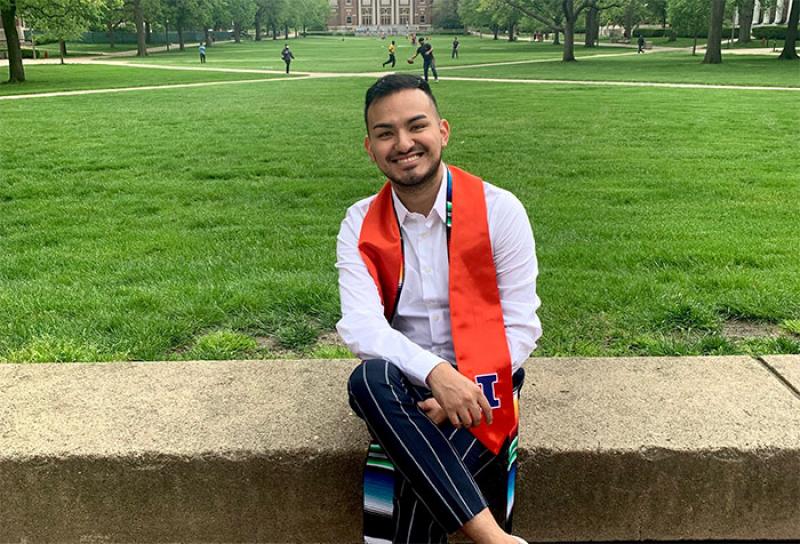
MPH student Edson Flores talks about his Applied Practice Experience
Students in the Master of Public Health program in the College of Applied Health Sciences at the University of Illinois have had to adjust their internships—known as Applied Practice Experiences—because of the ongoing COVID-19 pandemic. Periodically, we will speak with them about how those changes have affected their summer plans and potentially career paths. First up is Edson Flores, who is working as a research assistant for the Recreation, Sport & Tourism department of AHS.
Q: What are you doing this summer?
A: Partnering with a current PhD student, we are conducting bilingual cognitive interviews to increase the strength and reliability of a questionnaire targeting Mexican immigrants in the Midwest. Previous coursework from the MPH program has taught me the influence intersectionality has on patterns and choices people make especially when it comes to the foods they consume. I am fortunate to have received a well-rounded education from our MPH faculty. I am actively applying my Public Health knowledge throughout this summer internship!
Q: How are your experiences different from what you expected?
A: Originally, I expected to go to my summer APE for 7-8 hours every weekday working in a facility. However, my APE is remote which means there is a lot more independence when completing the work. Most of the work is done virtually, even the check-ins, which is something I was not anticipating.
Q: Are you doing something different for your APE than what you trained for?
A: No. My APE is research-based and that is something I am very interested in. I am part of a research lab on campus working with one of our MPH faculty so I am fortunate to have found a summer internship where I can use the skills I learned.
Q: Does your APE work lead you to think about a different career path?
A: Like mentioned earlier, my APE placement involves data collection and data analysis. My career path involves practicing and publishing my own research, therefore, my APE work is providing me with additional experience before I enter my PhD program.
Q: What are you missing out on because of the pandemic, in terms of working face-to-face with people?
A: One noticeable factor that is affected due to the pandemic is the inability to work face-to-face with participants. My APE involves administering questionnaires which were traditionally meant to be done in person. However, due to the current circumstances, we are using phone or video calls instead. Ideally, I would have liked to have met with the participants so they could have had a familiar face throughout the process.
Q: What advice do you have for future students who might have disrupted internships or APEs?
A: My advice to future students who may find themselves with disrupted APEs is to be creative. One thing that this pandemic has taught me was that there are alternative ways to produce the same work. My original plan was to administer questionnaires in person, but we had to think creatively and figure out new ways to achieve the same results. Our faculty are very resourceful so if you ever find yourself in that position, do not hesitate to use your resources!
